#british political history
Explore tagged Tumblr posts
Text
A very important video on the money Glasgow made from the empire and especially Scotland role in the slave trade
4K notes
·
View notes
Text

Portrait of Helen Beatrice Myfanwy Hughes, daughter of Billy Hughes, Prime-Minister of Australia (1931) by Philip de László. Private collection.
#billy hughes#australia#philip de lászló#female portrait#female portrayal#1931#circa 1931#painting#oil on canvas#oil painting#art#artwork#20th century art#early 20th century#20th century#art history#history of art#europe#1930s#1930s style#1930s fashion#decade: 1930s#1930s vintage#portraiture#politicians#political figure#british art#british painter#hungarian artist#hungarian art
875 notes
·
View notes
Text
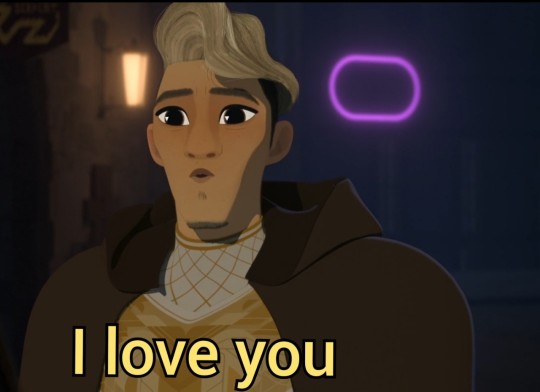

Good morning, everyone!
#king charles iii#king charles#charles iii#charles the third#british royal family#nimona#ballister boldheart#ambrosius goldenloin#ballister x ambrosius#goldenheart#original post#nd stevenson#nimona movie#ambrosius x ballister#history#netflix#riz ahmed#eugene lee yang#england#uk politics#current events
1K notes
·
View notes
Text
...the politics of race and immigration became intertwined with one another to the extent that during the period 1950-1981, every single piece of immigration or citizenship legislation was designed at least in part to reduce the number of people with black or brown skin who were permitted to live and work in the UK.
The Historical Roots of the Windrush Scandal: independent research report
96 notes
·
View notes
Text
The charitable interpretation of the law passed in the British Parliament today, an amnesty for all crimes committed by both paramilitary groups and British soldiers over the course of the Troubles, is this:
It is perfectly fine for British soldiers to murder innocent civilians, citizens of the United Kingdom. They will not be investigated for it. They will be given amnesty. They will face no justice.
That is the charitable interpretation. That is giving them the benefit of the doubt.
That is assuming they see the people they murdered as fellow British, and not something other and lesser than British. That this is a rule for all British citizens, and not an exception made for a certain group. That it's okay if members of that group died.
The charitable explanation is a chilling indictment of the British Government. The other explanation was British policy for eight hundred years.
I kinda hoped it had stopped being British Policy.
477 notes
·
View notes
Text

the joke really writes itself 💀
473 notes
·
View notes
Text
BBC Merlin has the opportunity to do something really funny today
#tumblr#made with tumblr#coronation#King Charles#king charles coronation#british royal history#british royal family#bbc merlin#Merlin#king arthur#the once and future king#british politics#uk politics
888 notes
·
View notes
Text
‘100% feminist’: how Eleanor Rathbone invented child benefit – and changed women’s lives for ever
She was an MP and author with a formidable reputation, fighting for the rights of women and refugees, and opposing the appeasement of Hitler. Why isn’t she better known today?
Ladies please reblog to give her the recognition she deserves

By Susanna Rustin Thu 4 Jul 2024
My used copy of the first edition of The Disinherited Family arrives in the post from a secondhand bookseller in Lancashire. A dark blue hardback inscribed with the name of its first owner, Miss M Marshall, and the year of publication, 1924, it cost just £12.99. I am not a collector of old tomes but am thrilled to have this one. It has a case to be considered among the most important feminist economics books ever written.
Its centenary has so far received little, if any, attention. Yet the arguments it sets out are the reason nearly all mothers in the UK receive child benefit from the government. Its author, Eleanor Rathbone, was one of the most influential women in politics in the first half of the 20th century. She led the National Union of Societies for Equal Citizenship (Nusec, the main suffragist organisation, also formerly known as the National Union of Women Suffrage Societies) from 1919, when Millicent Fawcett stood down, until the roughly five million women who were not enfranchised in 1918 gained the vote 10 years later. In 1929, aged 57, she became an MP, and remained in parliament until her death in 1946. While there, she built up a formidable reputation based on her advocacy for women’s rights, welfare reform and the rights of refugees, and her opposition to the appeasement of Hitler.
It would not be true to say that Eleanor Rathbone has been forgotten. Her portrait by James Gunn hangs in the National Portrait Gallery. Twenty years ago she was the subject of a fine biography and she is remembered at Somerville college, Oxford – where she studied in the 1890s and ran a society called the Associated Prigs. (While the name was a joke, Rathbone did have a priggish side – as well as being an original thinker, tremendous campaigner, and stubborn, sensitive personality.) She also features in Rachel Reeves’s book The Women Who Made Modern Economics, although Reeves – who hopes shortly to become the UK’s first female chancellor – pays more attention to her contemporary, Beatrice Webb.

A thrilling tome … The Disinherited Family by Eleanor Rathbone. Photograph: Alicia Canter/The Guardian
But Rathbone, who came from a wealthy dynasty of nonconformist merchants, does not have anything like the name-recognition of the Pankhursts or Millicent Fawcett, or of pioneering politicians including Nancy Astor and Ellen Wilkinson. Nor does she enjoy the cachet of writers such as Virginia Woolf, whose polemic about women’s opportunities, A Room of One’s Own, was published five years after Rathbone’s magnum opus.
There are many reasons for Rathbone’s relative obscurity. One is that she was the first woman elected to parliament as an independent (and one of a handful of men at the time). Thus there is no political party with an interest in turning her into an icon. Having spent the past three years writing a book about the British women’s movement, I am embarrassed to admit that when I started, I didn’t know who she was.
Rathbone was not the first person to propose state benefits paid to mothers. The endowment of motherhood or family allowances, as the policy was known, was written about by the Swedish feminist Ellen Key, and tried out as a project of the Fabian Women’s Group, who published their findings in a pamphlet in 1912. But Rathbone pushed the idea to the forefront. A first attempt to get Nusec to adopt it was knocked back in 1921, and she then spent three years conducting research. The title she gave the book she produced, The Disinherited Family, reflected her view that women and children were being deprived of their rightful share of the country’s wealth.
The problem, as she saw it, was one of distribution. While the wage system in industrialised countries treated all workers on a given pay grade the same, some households needed more money than others. While unions argued for higher wages across the board, Rathbone believed the state should supplement the incomes of larger families. She opened the book with an archly phrased rhetorical question: “Whether there is any subject in the world of equal importance that has received so little consideration as the economic status of the family?” She went on to accuse economists of behaving as if they were “self-propagating bachelors” – so little did the lives of mothers appear to interest them.
Rathbone’s twin aims were to end wives’ dependence on husbands and reward their domestic labour. Family allowances paid directly to them could either be spent on housekeeping or childcare, enabling them to go out to work. Ellen Wilkinson, the radical Labour MP for Middlesbrough (and future minister for education), was among early supporters. William Beveridge read the book when he was director of the London School of Economics, declared himself a convert and introduced one of the first schemes of family-linked payments for his staff.
But others were strongly opposed. Conservative objections to such a radical expansion of the state were predictable. But they were echoed by liberal feminists including Millicent Fawcett, who called the plan “a step in the direction of practical socialism”. Trade unions preferred to push for a living wage, while some male MPs thought the policy undermined the role of men as breadwinners. Labour and the Trades Union Congress (TUC) finally swung behind family allowances in 1942. As the war drew to a close, Rathbone led a backbench rebellion against ministers who wanted to pay the benefit to fathers instead.

Rathbone celebrates the Silver Jubilee of the Women’s Vote in London, 20 February 1943. Photograph: Picture Post/Getty Images
It is for this signature policy that she is most often remembered today. At a time when hundreds of thousands of children have been pushed into poverty by the two-child limit on benefit payments, Rathbone’s advocacy on behalf of larger families could hardly be more relevant. The limit, devised by George Osborne, applies to universal and child tax credits – and not child benefit itself. But Rishi Sunak’s government announced changes to the latter in this year’s budget. From 2026, eligibility will be assessed on a household rather than individual basis. This is intended to limit payments to better-off, dual-income families. But the UK Women’s Budget Group and others have objected on grounds that child benefit should retain its original purpose of directly remunerating primary carers (the vast majority of them mothers) for the work of rearing children. It remains to be seen whether this plan will be carried through by the next government.
Rathbone once told the House of Commons she was “100% feminist”, and few MPs have been as single-minded in their commitment to women’s causes. As president of Nusec (the law-abiding wing of the suffrage campaign), she played a vital role in finishing the job of winning votes for women.
The last few years have seen a resurgence of interest in women’s suffrage, partly due to the centenary of the first women’s suffrage act. Thanks to a brilliant campaign by Caroline Criado Perez, a statue of Millicent Fawcett, the nonmilitant suffragist leader, now stands in Westminster, a few minutes walk from the bronze memorial of Emmeline Pankhurst erected in 1930. Suffragette direct action has long been a source of fascination. What is less well known is that militants played little part in the movement after 1918. It was law-abiding constitutionalists – suffragists rather than suffragettes – who pushed through the 1920s to win votes for the younger and poorer women who did not yet have them. Rathbone helped lead this final phase of the campaign, along with Conservative MP Nancy Astor and others.
Rathbone was highly critical of the militants, and once claimed that they “came within an inch of wrecking the suffrage movement, perhaps for a generation”. Today, with climate groups including Just Stop Oil copying the suffragette tactic of vandalising paintings, it is worth remembering that many women’s suffrage campaigners opposed such methods.
Schismatic though it was, the suffrage movement at least had a shared goal. An even greater challenge for feminists in the 1920s was agreeing on future priorities. Equal pay, parental rights and an end to the sexual double standard were among demands that had broad support. After the arrival in the House of Commons of the first female MPs, legislative successes included the removal of the bar on women’s entry to the professions, new rights for mothers and widows’ pensions. But there were also fierce disagreements.
Tensions between class and sexual politics were longstanding, with some on the left regarding feminism as a distraction. The Labour MP Marion Phillips, for example, thought membership of single-sex groups placed women “in danger of getting their political opinions muddled”. There was also renewed conflict over protective legislation – the name given to employment laws that differentiated between men and women. While such measures included maternity leave and safety rules for pregnant women, many feminists believed their true purpose was to keep jobs for men – and prevent female workers from competing.
Underlying such arguments was the question of whether women, once enfranchised, should strive for equal treatment, or push for measures designed to address their specific needs. As the debate grew more heated, partisans on either side gave themselves the labels of “old” and “new” feminists. While the former, also called equalitarians, wanted to focus on the obstacles that prevented women from participating in public life on the same terms as men, the new feminists led by Rathbone sought to pioneer an innovative, woman-centred politics. Since this brought to the fore issues such as reproductive health and mothers’ poverty, it is known as “maternalist feminism”.

Rathbone and other Liverpool suffragettes campaigning in 1910. Photograph: Shawshots/Alamy
The faultline extended beyond Britain. But Rathbone and her foes had some of the angriest clashes. At one international convention, Lady Rhondda, a wealthy former suffragette, used a speech to deride rivals who chose to “putter away” at welfare work, instead of the issues she considered important.
The specific policy points at issue have, of course, changed over the past century. But arguments about how much emphasis feminists should place on biological differences between men and women carry on.
Eleanor Rathbone did not live long enough to see the welfare state, including child benefit paid to mothers, take root in postwar Britain. Her election to parliament coincided with the Depression, and the lengthening shadows of fascism and nazism meant that she, like her colleagues, became preoccupied with foreign affairs. In the general election of 1935, the number of female MPs fell from 15 to nine, meaning Rathbone’s was one of just a handful of women’s voices. She used hers to oppose the policy of appeasement, and support the rights of refugees, including those escaping Franco’s Spain. During the war she helped run an extra-parliamentary “woman-power committee”, which advocated for female workers.
She also became a supporter of Indian women’s rights, though her liberal imperialism led to tensions with Indian feminists. During the war she angered India’s most eminent writer, Rabindranath Tagore, and its future prime minister, Jawaharlal Nehru, when she attacked the Congress party’s policy of noncooperation with Britain’s war effort. Tagore criticised what he called the “sheer insolent self-complacency” of her demand that the anti-colonial struggle should be set aside while Britain fought Germany.
Rathbone turned down a damehood. After their first shared house in Westminster was bombed, she and her life partner, the Scottish social worker Elizabeth Macadam, moved around the corner to a flat on Tufton Street (Macadam destroyed their letters, meaning that Rathbone’s intimate life remains obscure, but historians believe the relationship was platonic). From there they moved to a larger, quieter house in Highgate. On 2 January 1946, Rathbone suddenly died.

Rathbone’s blue plaque at Tufton Court. Photograph: PjrPlaques/Alamy
A blue plaque on Tufton Street commemorates her as the “pioneer of family allowances” – providing an alternative claim on posterity for an address more commonly associated with the Brexit campaign, since a house a few doors down became its headquarters. She is remembered, too, in Liverpool, where her experience of dispersing welfare to desperately poor soldiers’ wives in the first world war changed the course of her life, and where one of her former homes is being restored by the university.
I don’t believe in ghosts. But walking in Westminster recently, I imagined her hastening across St James’s Park to one of her meetings at Nancy Astor’s house near the London Library. Today, suffragettes are celebrated for their innovative direct action. But Rathbone blazed a trail, too, with her dedication as a campaigner, writer, lobbyist and “100% feminist” parliamentarian.
Sexed: A History of British Feminism by Susanna Rustin is published by Polity Press (£20). To support the Guardian order your copy at guardianbookshop.com. Delivery charges may apply
#Eleanor Rathbone#The Disinherited Family#Books by women#Books about women#Child benefit#National Union of Societies for Equal Citizenship (Nusec)#Rachel Reeve#The Women Who Made Modern Economics#Women in politics#UK#Seed: A History of British Feminism#Susan Rustin
88 notes
·
View notes
Text
Incorruptible pt 32
If you didn't know where the terms 'left wing' and 'right wing' come from...now you know! Also, can you spot the Robespierres in these pages? lol
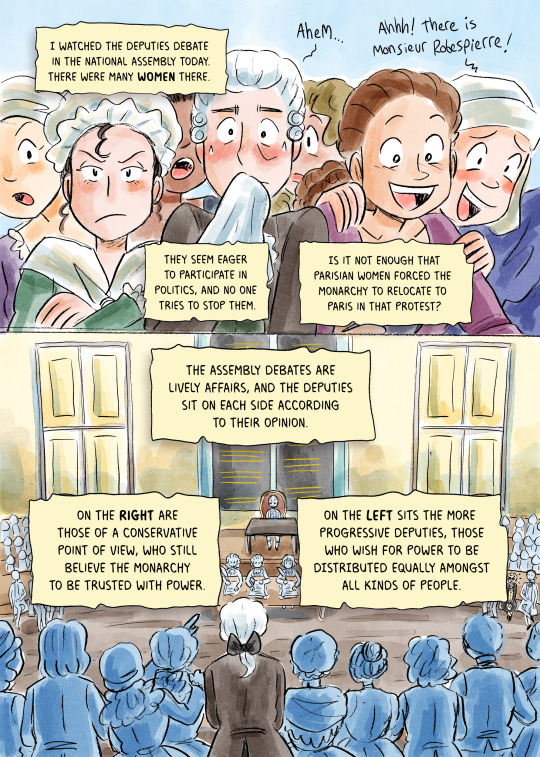
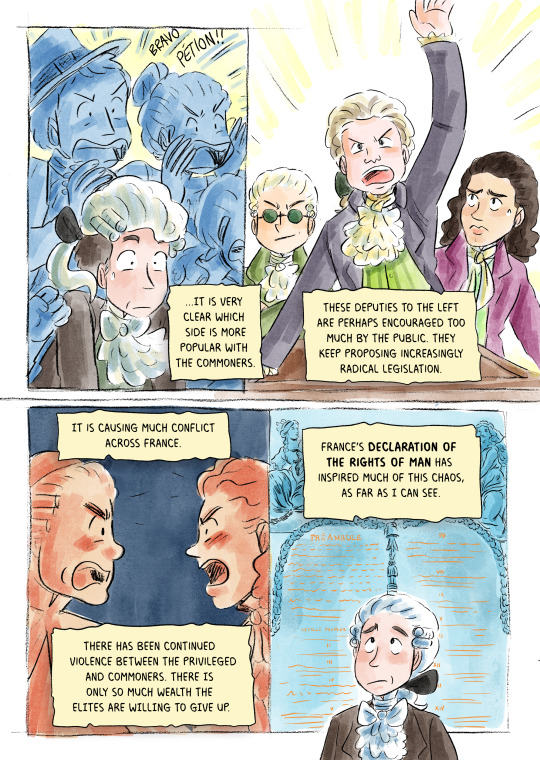
#incorruptiblecomic#can you name the other revolutionaries on the 2nd page?#what a fun game lol#I'm also sorry for this very cynical and aghast 'Anglo' viewpoint. Its probably only funny to me#the British person who goes to bookshops and mostly only finds Frev books from this irritating 'they were too progressive' pov lol#frev#french revolution#maximilien robespierre#robespierre#history comic#history#political history#comic#webcomic#webtoon#historical fiction#french history
115 notes
·
View notes
Text

At least Mao admitted that he fucked up during the Great Leap Forward and self-criticized for it. Winston Churchill just straight up doubled down on it and blamed it on Indians Imao.
#tumblr memes#memes#meme#meme humor#history memes#history humour#history shitposting#british memes#political memes#political humor#political shitposting#funny stuff#funny#funny memes#funny but true#funny shit#funny post#ha ha funny#funny because it's true#funny meme haha#funny meme xd#humor#humour#true memes#shitpost#shitposting#lol#lol memes#dank memes#dank humor
60 notes
·
View notes
Text

#baalbek#lebanon#palestine#israel is a terrorist occupation#genocide#ethnic cleansing#fuck israel#free palestine#from the river to the sea palestine will be free#israel#british politics#us politics#unesco#heritage site#art history#archeology#gaza#zionism
25 notes
·
View notes
Text
While enslaved people were mostly overseas, in colonies, out of sight, slavery funded British wealth and institutions from the Bank of England to the Royal Mail. The extent to which modern Britain was shaped by the profits of the transatlantic slave economy was made even clearer with the launch in 2013 of the Legacies of British Slave-ownership project at University College London. It digitised the records of tens of thousands of people who claimed compensation from the government when colonial slavery was abolished in 1833, making it far easier to see how the wealth created by slavery spread throughout Britain after abolition. “Slave-ownership,” the researchers concluded, “permeated the British elites of the early 19th century and helped form the elites of the 20th century.” (Among others, it showed that David Cameron’s ancestors, and the founders of the Greene King pub chain, had enslaved people.)
But as Bell-Romero would write in his report on Caius, “the legacies of enslavement encompassed far more than the ownership of plantations and investments in the slave trade”. Scholars undertaking this kind of archival research typically look at the myriad ways in which individuals linked to an institution might have profited from slavery – ranging from direct involvement in the trade of enslaved people or the goods they produced, to one-step-removed financial interests such as holding shares in slave-trading entities such as the South Sea or East India Companies.
Bronwen Everill, an expert in the history of slavery and a fellow at Caius, points out “how widespread and mundane all of this was”. Mapping these connections, she says, simply “makes it much harder to hold the belief that Britain suddenly rose to power through its innate qualities; actually, this great wealth is linked to a very specific moment of wealth creation through the dramatic exploitation of African labour.”
This academic interest in forensically quantifying British institutions’ involvement in slavery has been steadily growing for several decades. But in recent years, this has been accompanied by calls for Britain to re-evaluate its imperial history, starting with the Rhodes Must Fall campaign in 2015. The Black Lives Matter protests of 2020 turbo-charged the debate, and in response, more institutions in the UK commissioned research on their historic links to slavery – including the Bank of England, Lloyd’s, the National Trust, the Joseph Rowntree Foundation and the Guardian.
But as public interest in exploring and quantifying Britain’s historic links to slavery exploded in 2020, so too did a conservative backlash against “wokery”. Critics argue that the whole enterprise of examining historic links to slavery is an exercise in denigrating Britain and seeking out evidence for a foregone conclusion. Debate quickly ceases to be about the research itself – and becomes a proxy for questions of national pride. “What seems to make people really angry is the suggestion of change [in response to this sort of research], or the removal of specific things – statues, names – which is taken as a suggestion that people today should be guilty,” said Natalie Zacek, an academic at the University of Manchester who is writing a book on English universities and slavery. “I’ve never quite gotten to the bottom of that – no one is saying you, today, are a terrible person because you’re white. We’re simply saying there is another story here.”
323 notes
·
View notes
Note
hii where do you think someone should start with books on british politics, particularly the stuff you tend to post about?
omg hi!! if you want to read about new labour 100% the best place to start are andrew rawnsley's two books, servants of the people and the end of the party. combined they are about 1500 pages and they can be a little overdramatised but they are incredibly interesting and readable and batshit insane and homoerotic.
otherwise i've actually only read (listened to the audiobooks of) tony blair and peter mandelson's autobiographies and im not sure i'd recommend going through what i did with 16 straight hours of blair in my ear - @afieldinengland has read more books about them than me and might be able to give more recommendations :). ones i haven't read but intend to are alastair campbell's diaries, the rivals by james naughtie, and the new machiavelli by jonathan powell. i would also rec the documentary blair and brown: the new labour revolution, which is on youtube.
#also read recollections of a bleeding heart by don watson its not british but its phenomenal#i read one about the iraq war specifically too bc thats an area of interest for me but it wasnt very good... girl cite your sources#i havent rly read heaps of books since my political obsession started bc im kind of a slow reader‚ just 12‚ ranging from british political#history to australian political history to aus republicanism to electoral laws etc but if any of that sounds interesting i can just share#the titles of all of those#asks#anon#political yaoi tag#new labour#books
29 notes
·
View notes
Text
as the UK withdrew from its colonies, the colonial administrations burned truck loads of documents. as a result, we may never have an accurate picture of the inhumanity of british colonial rule. what we do know, from creating famines in india to castrating mau mau rebels in kenya, in an attempt to make them less rebellious, is truly horrific. today the UK still commits atrocities, but no longer under the guise of civilizing the inferior races, all its actions are in defence of "liberty" and "freedom". quite how the UK is delivering freedom by bombing the Yemeni people as they try to prevent a genocide is unclear, unless we're only talking about the freedom of british trade in the red sea. or perhaps we could ask about freedom in the slave markets of libya after the UK intervened with its allies to overthrow their government
14 notes
·
View notes
Text
Funniest part about the conservatives wanting to reintroduce national service is that people with a history of depression or anxiety can't join. Like good luck finding 18 year olds without anxiety or depression in this economy
#can't wait until I'm being conscripted and I activate my self harm scars trap card#(<-ppl with a history of self harm also aren't allowed to join the british military)#uk politics
23 notes
·
View notes
Text

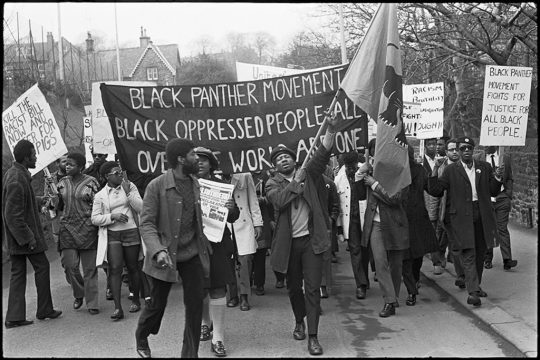

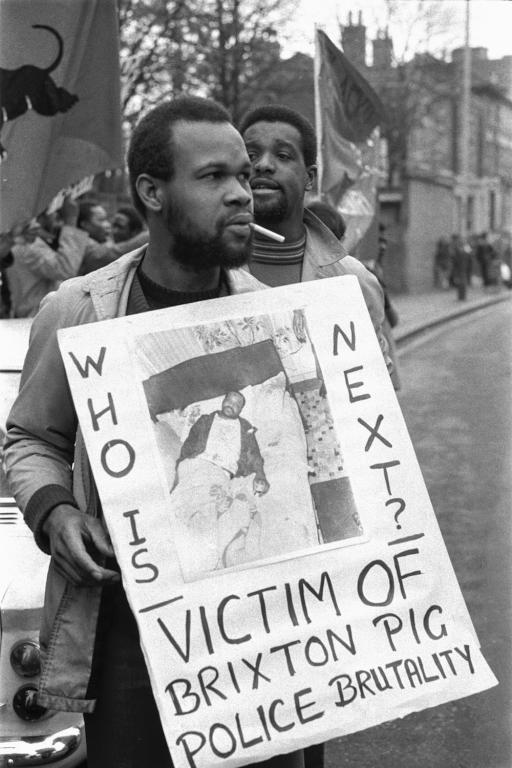
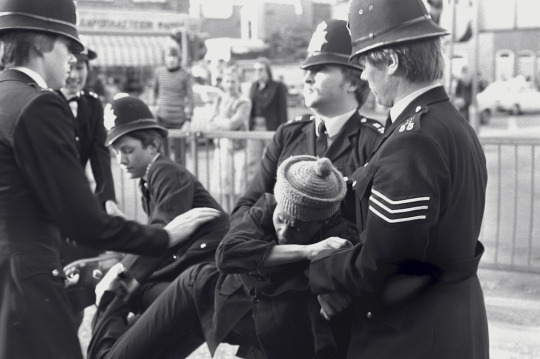
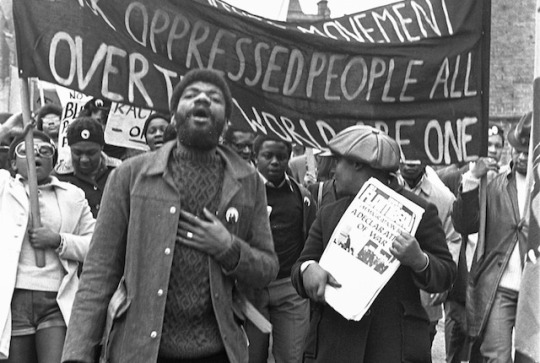
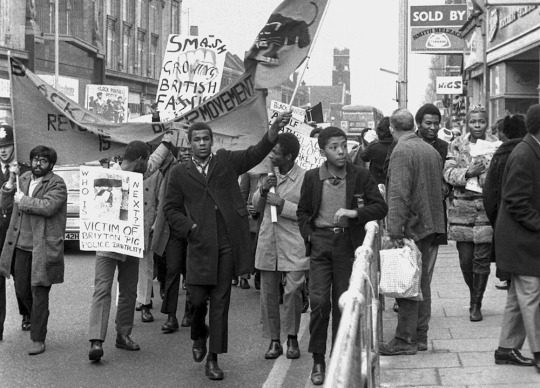
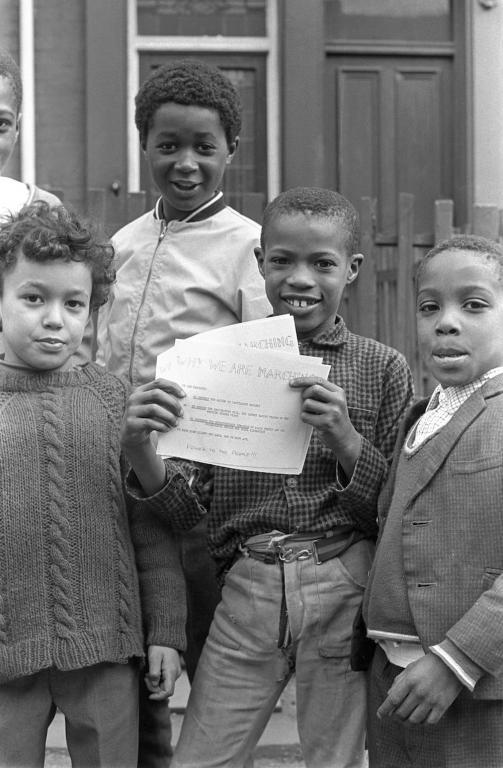

A collection of photos by Neil Kenlock of the British Black Panther party from 1968-1972.
#black history month#black history month uk#british black panthers#british black panther party#neil kenlock#black british#black british history#black panther party#british black history month#politics#helen speaks
57 notes
·
View notes